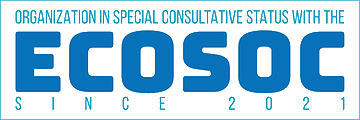The Camel Caravan 2023

In the wee hours of the 4th of August 2023, a group of community members, planning organizations, the media and allies started a 6-day walk from Gafarsa in Isiolo County to Archer’s post in Samburu county, a 155kilometers distance as we collectively advocated for the Restoration and Conservation of the Ewaso Ng’iro River.
Ewaso Ng’iro Basin is the second largest basin in kenya after tana, it cuts across ten counties and more than 10million people depend on it. It is inextricably intertwined with the culture and heritage of the communities and thus unifies and divides them in the basin in equal measure. These communities have managed to conserve and sustainably use the resources within the basin using Indigenous traditional knowledge over the years, but in this period of increasing human population, large-scale agricultural activities, infrastructure development, and climate change, the river dries up, gets polluted, and is contested.
Climate change has led to an increase in the frequency and intensity of natural disasters, natural resource scarcity, and environmental degradation. Water users, including communities, livestock and wildlife, the public sector, and corporate entities, both upstream, midstream, and downstream, often lack a shared understanding of the threats facing the river system and fail to effectively collaborate around integrated water resources management. This has led to conflicts and an escalation of the threats facing river systems.

Before our departure, we planted trees at Gafarsa Mixed Secondary School and flagged off the 11th edition of the most prestigious annual event “THE CAMEL CARAVAN” with blessings from elders of the Borana community of Isiolo County. On the first day, we walked 20 km to Mbarambate where we camped at the shores of the Ewaso Ng’iro River engaging community members in discussions and sensitizing them on the importance of the protection of their shared natural resources. We also addressed the challenges facing the Ewaso Ng’iro River causing the drastic water flow reduction and we together forged ways of restoring the ecosystem; the communities from all the corners camped cooked and ate together as a symbol of peace and unity. These activities were carried out at every stopping point during the walk.

On the 2nd day, we walked a distance of 34kms to Malkadaka where we set camp at Malkadaka primary school and engaged community members and later showed them a video of the previous Camel Caravans to show the decline of the river over the years.This will make communities understand the urgency of the protection ,restoration and conservation of the river that is their main source of water.

On the 3rd day we walked a distance of 23kms from Malkadaka to Gotu where we camped at Camp Simpirre – a culture and indigenous knowledge documentation and publishing center. Dr Hussein Isack the founder took us through the developed information knowledge banks from where current and future generations can retrieve their ancestral indigenous knowledge that will help them go back in their communities’ historical timeline and recreate their diminished languages and cultural practices documented and archived in print and electronic formats. We later held community engagements and watched documentaries.

On the 4th day we left Gotu for camp funan a distance of 5okms which we had to be carried by vehicles through Shaba Game Reserve to avoid any conflict with wildlife. We camped in the wild to enjoy the serenity and experienced the fulfillment in interaction with nature to remind us the importance of conserving our resources.

On the 5th day we walked 20kms to KWS Complex in Archers post where we had cultural music and dance from indigenous local communities’ musicians ahead of the World indigenous people’s day to be held the following day. The dances and music were to remind us of our diversity which should be a source of our pride and strength as indigenous people. Messages of peace and conservation were shared as a reminder of how we have always lived in harmony with nature and one another.

On 9th August 2023 which was the 6th day of the Camel Caravan walk, we marked the World Indigenous People’s Day. All communities who benefit from the Ewaso Ng’iro River gathered at Archers Post to discuss ways in which they can collectively work together to save the already dying river, which will also help in solving the ongoing conflicts over natural resources. The presence of government officials and or state agencies in the celebration provided an interactive session whereby they were challenged to be our eyes at top-level meetings and conferences and advocate for equal sharing of shared resources like the Ewaso Ng’iro River and also push for policies that help the indigenous communities.



